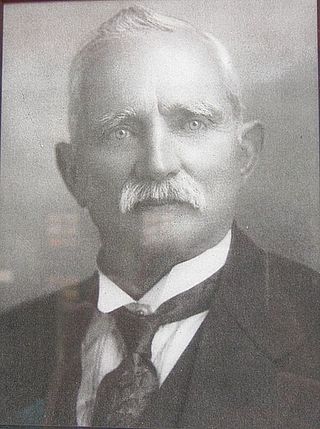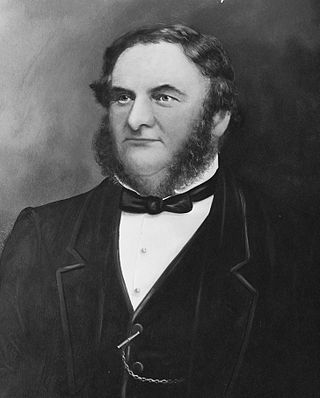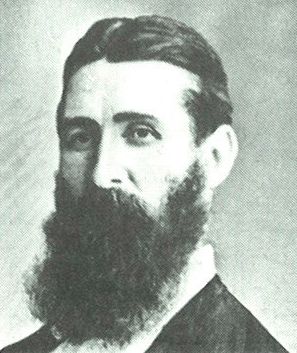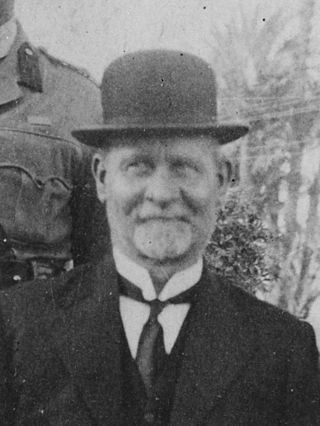
The 1887 New Zealand general election was held on 26 September to elect 95 MPs to the tenth session of the New Zealand Parliament. The Māori vote was held on 7 September. 175,410 votes were cast. In 5 seats there was only one candidate.

James McGowan was a New Zealand politician of the Liberal Party.

Jackson Palmer was the Member of Parliament for Waitemata and Ohinemuri, in the North Island of New Zealand.

Henry James Greenslade was a Liberal Party Member of Parliament in New Zealand.

Cecil Henry Clinkard was a United Party Member of Parliament in New Zealand, and the first mayor of Rotorua.

Gilbert Carson was an independent conservative Member of Parliament in New Zealand.

William Barbour Wilson, also known as Cabbage Wilson, was the first Mayor of Christchurch in New Zealand in 1868. A nurseryman by profession, he had large landholdings in Christchurch. His reputation was dented by a fraud conviction, and when he was subsequently elected onto the city council once more, five councillors resigned in protest.

William Francis Buckland was a 19th-century Member of Parliament in New Zealand, an independent conservative MP and cricketer.
The third New Zealand Parliament was a term of the Parliament of New Zealand. Elections for this term were held between 12 December 1860 and 28 March 1861 in 43 electorates to elect 53 MPs. Two electorates were added to this during this term, Gold Fields District and a new Dunedin electorate created by splitting the existing City of Dunedin into Dunedin and Suburbs North and Dunedin and Suburbs South, increasing the number of MPs to 57. During the term of this Parliament, six Ministries were in power.

Henry Thomson JP was a 19th-century Mayor of Christchurch and Member of Parliament for the Christchurch North electorate in Canterbury, New Zealand.

Richmond Hursthouse was a 19th-century Member of Parliament in Nelson, New Zealand, and a cabinet minister.

William James Speight was a 19th-century Member of Parliament in Auckland, New Zealand.

Archibald Clark was a Scottish 19th-century Member of Parliament in the Auckland Region, New Zealand. He was the first Mayor of Auckland in 1851. His company, Archibald Clark and Sons, manufactured clothing and was a wholesaler.
The 8th New Zealand Parliament was a term of the New Zealand Parliament.
The 10th New Zealand Parliament was a term of the Parliament of New Zealand. Elections for this term were held in 4 Māori electorates and 91 European electorates on 7 and 26 September 1887, respectively. A total of 95 MPs were elected. Parliament was prorogued in October 1890. During the term of this Parliament, two Ministries were in power.

James McCosh Clark was Mayor of Auckland City in the 1880s. He was a successful businessman until many of his ventures failed during the depression of the 1880s, causing him to return to England for the last decade of his life. He was the son of Archibald Clark.

William McCullough was a New Zealand politician.

The mayor of Blenheim officiated over the borough of Blenheim, New Zealand. The office was created in 1869 when Blenheim became a borough, and ceased with the 1989 local government reforms, when Blenheim Borough was amalgamated with Picton Borough and Marlborough County Council to form Marlborough District. There were 31 mayors of Blenheim. The last mayor of Blenheim, Leo McKendry, was elected as the first mayor of Marlborough.
The Mayor of Grey, often referred to as the Mayor of Greymouth, officiates over the Grey District of New Zealand which is administered by the Grey District Council with its seat in Greymouth. The current Mayor is Tania Gibson. Two predecessors to this office were the Mayor of Greymouth, officiating over the Greymouth Borough Council from 1868, and from 1877 the chairman of the Grey County Council.

The Thames by-election of 1909 was a by-election held during the 17th New Zealand Parliament.
















